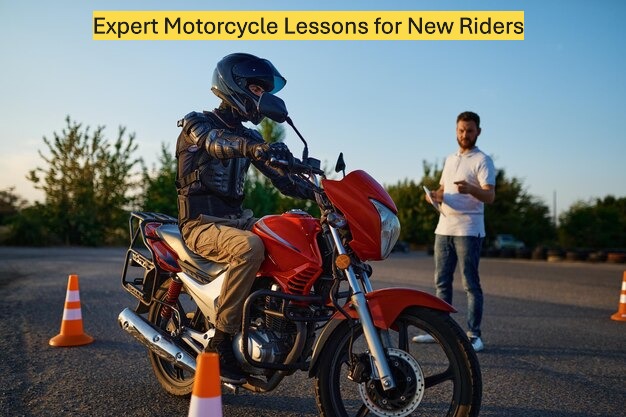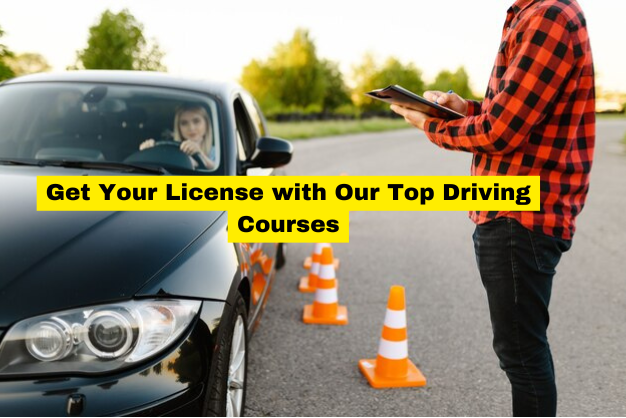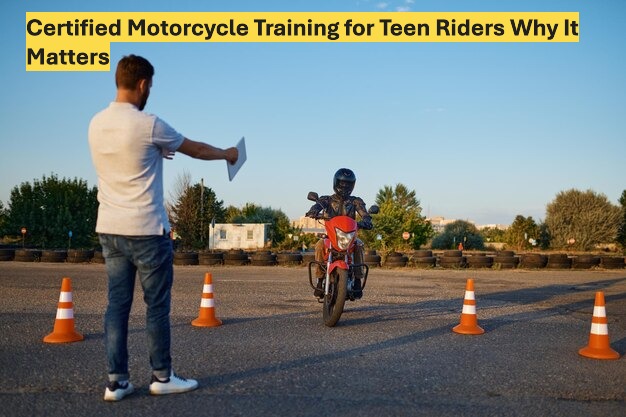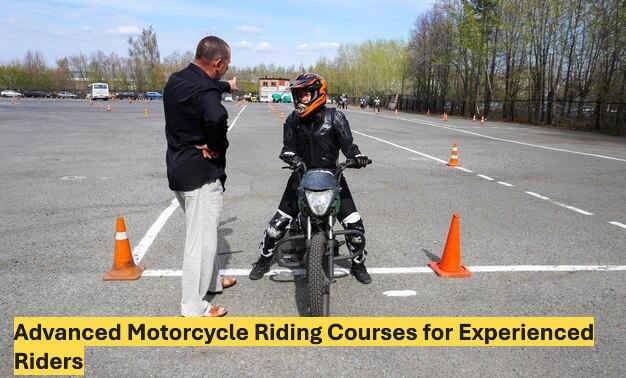Expert Motorcycle Lessons for New Riders

Learning how to ride a motorcycle can be an exhilarating and rewarding experience. However, for new riders, it can also seem intimidating at first. Handling a two-wheeled machine while navigating through traffic and keeping yourself safe is no easy feat. This is where expert motorcycle lessons come in. Whether a beginner or looking to refresh your skills, enrolling in the proper motorcycle lessons will give you the knowledge and confidence to ride safely.
Why Motorcycle Lessons are Essential for Beginners
Motorcycle lessons are designed to equip new riders with the skills needed to navigate the roads safely. Many people believe they can learn to ride independently, but professional lessons provide several benefits. These lessons give riders a structured learning environment, with expert instructors guiding them every step of the way.
One key aspect of expert motorcycle lessons is safety. With the right training, riders learn the importance of proper gear, road safety, and how to control the bike under different conditions. Whether you want to learn in a classroom setting or through practical riding lessons, expert instruction helps build Confidence and instills the knowledge required to stay safe.
Additionally, expert lessons provide crucial insights into handling a motorcycle in a way that minimizes risks. You’ll also learn to maintain your bike correctly, ensuring its longevity and functionality. Furthermore, professional instructors know how to teach riders at their own pace, ensuring that each lesson is suited to the learner’s comfort level and skill development.

Getting Started with Motorcycle Lessons: What to Expect
When you first sign up for motorcycle lessons, expect to go through a few stages of learning. Here’s an overview of what new riders typically experience during their lessons.
1. Classroom Instruction
The first part of your training may involve classroom instruction, where you will learn the basics of riding, including understanding the motorcycle’s controls, maintaining balance, and traffic laws specific to motorcyclists. This is an excellent opportunity to ask questions and clear doubts about motorcycle riding before you hit the road.
2. Motorcycle Safety Gear
Your instructor will emphasize the importance of wearing the proper safety gear. Helmets, gloves, jackets, pants, and boots are all essential to riding safety. You will learn the difference between various types of gear and what’s best suited for your riding style.
3. Basic Riding Skills
During the practical riding portion of the lesson, you will start by practicing basic maneuvers such as starting the bike, braking, and learning how to shift gears smoothly. This is critical to your training since it builds your muscle memory and reflexes.
4. Advanced Techniques and Road Practice
As you progress, your instructor will introduce more advanced techniques, such as cornering, emergency braking, and obstacle avoidance. You’ll also practice riding in different environments and conditions, such as in traffic, during the day, or at night.
Key Skills Learned in Motorcycle Lessons
Motorcycle lessons go beyond simply learning how to operate a bike. They also teach you essential skills for staying safe and handling your bike confidently in different situations.
1. Control and Coordination
Controlling a motorcycle requires balance, coordination, and muscle memory. Lessons teach you how to balance the bike at low speeds, accelerate smoothly, and use both hands and feet to control the bike effectively.
2. Traffic Awareness and Defensive Riding
Motorcycle riders are more vulnerable than car drivers, so staying aware of your surroundings is crucial. Lessons teach you defensive riding strategies such as scanning for hazards, anticipating the actions of other drivers, and understanding road signs and markings.
3. Smooth Braking and Acceleration
New riders often struggle with smooth acceleration and braking. Motorcycle lessons help you understand the proper use of throttle and brakes and techniques for emergency braking when necessary. Riding smoothly not only improves safety but also ensures better fuel efficiency.
4. Turning and Cornering
Turning is one of the most critical aspects of motorcycle riding. Expert instructors teach you the proper techniques for leaning into corners and executing smooth turns, which are vital for your safety and control, especially when riding at higher speeds.
The Benefits of Professional Motorcycle Training
There are many advantages to taking professional motorcycle lessons instead of learning alone. Here are just a few:
1. Structured Learning Process
Professional instructors offer a structured approach that ensures you learn systematically. They break down the lessons into easily digestible sections, ensuring you understand each concept before moving on to the next.
2. Personalized Instruction
Each student has different learning styles, and instructors tailor their teaching methods to fit your needs. Whether you’re a quick learner or need more time to grasp the concepts, expert instructors help you every step of the way.
3. Hands-On Experience
While classroom instruction is essential, the real learning happens on the bike. Professional motorcycle lessons provide hands-on experience, where you’ll have the chance to practice your skills in a safe, controlled environment.
4. Builds Confidence
Learning from experts ensures you gain knowledge and develop the Confidence to ride on public roads. You’ll feel more comfortable riding in traffic or dealing with unexpected situations.
5. Better Insurance Rates
Completing a certified motorcycle training course can qualify you for discounts on motorcycle insurance premiums in many regions. Insurance companies view trained riders as less of a risk, which could result in significant savings for you.
Choosing the Right Motorcycle Lesson Provider
When selecting a motorcycle lesson provider, there are a few factors to consider:
- Experience of Instructors: Look for instructors with experience and a proven track record in teaching new riders.
- Accreditation: Ensure the school or instructor is accredited by a recognized organization. This ensures that they follow proper training standards.
- Fleet of Bikes: A good school should have a variety of bikes available for different rider sizes and skill levels.
- Pricing: Compare pricing to ensure you get a fair deal, but remember that the cheapest option may not always provide the best value.
One often overlooked aspect of choosing a motorcycle lesson provider is considering their motorcycle rider safety course curriculum, which helps ensure the course is comprehensive and suited to the needs of new riders.
Motorcycle rider safety course
By selecting a lesson provider emphasizing safety, you’re not just learning how to ride a motorcycle but how to do so responsibly and safely. This is crucial to your well-being on the road.
“FAQS”
1. How long do motorcycle lessons usually take?
Motorcycle lessons can vary in duration, but most beginner courses take anywhere from 2 to 3 days. However, some programs may spread over a few weeks to allow you to practice between lessons.
2. What should I bring to my motorcycle lesson?
You should bring protective gear, such as a helmet, gloves, and sturdy boots. If you don’t have gear, some schools provide it. Always check with your lesson provider beforehand.
3. Is motorcycle training required by law?
In some states or countries, motorcycle training is mandatory before obtaining a motorcycle license. Check your local regulations to see if you need formal training.
4. Do I need a motorcycle license before taking lessons?
No, you don’t need a motorcycle license to start lessons. Many classes are designed to help you obtain a permit. After completing the course, you will typically have the skills to pass a riding test for your license.
Conclusion
Expert motorcycle lessons are an invaluable resource for new riders, providing the essential skills and knowledge needed for a safe and enjoyable riding experience. From basic controls to advanced techniques, these lessons ensure you’re confident in your abilities and secure on the road. Whether you want to complete a motorcycle rider safety course or learn to ride confidently, professional instruction is the key to becoming a skilled and responsible rider.
By enrolling in expert lessons, you invest in your safety, enjoyment, and future as a motorcyclist.




